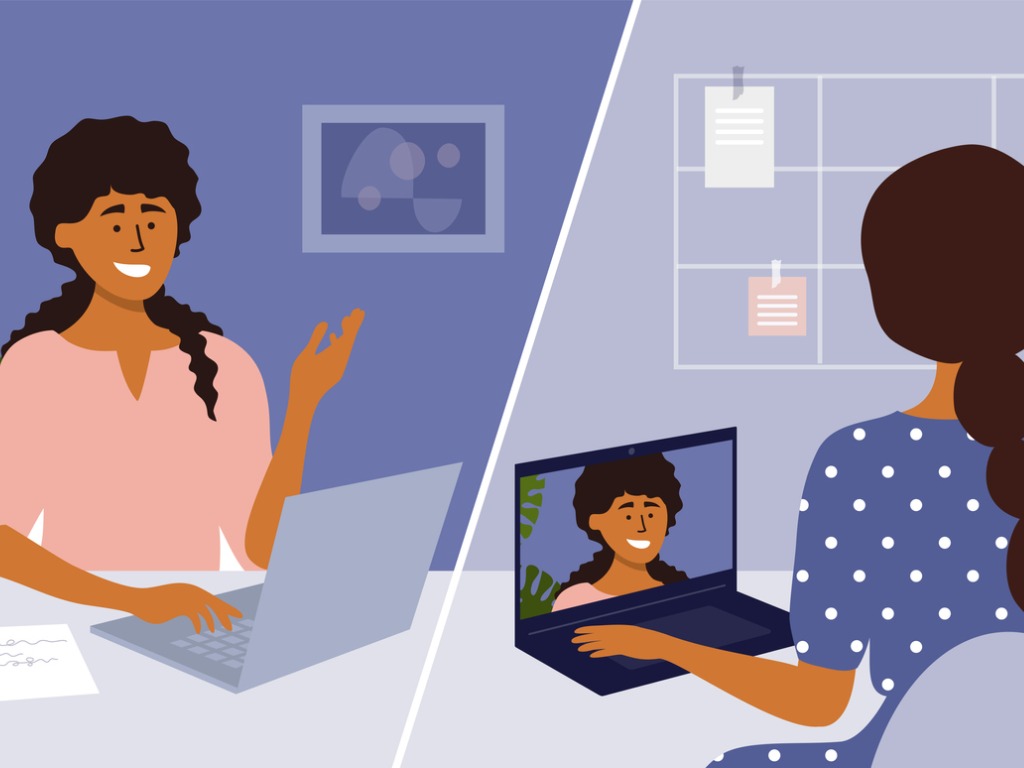
Claire Gray shares her top tips to help you perfect your online interview techniques
Getting hired can be a minefield even in ‘normal times’, but in today’s post-pandemic world of social distancing and remote working, the rules of engagement have evolved. Many of the traditional ways of excelling at interviews still apply, and a host of new techniques to ensure you shine online have also emerged. Both need considering before stepping into the Zoom limelight.
Whether an interview is face to face or carried out remotely, it is a two-way process as much about discovering whether the role is suitable for you as it is for the employer to figure out if you are a good fit for the position. It’s important to present the real you – not an airbrushed version – and be honest about your career expectations and needs. Hiring is a two-way process, and if the job isn’t what you are looking for, better to be upfront about that from the outset.
It’s All in the Preparation
The caveat to being yourself is that you should not shy away from sharing instances where you have been successful, both in your career and your home life. If you are a champion chess player, tell them about it – it is proof you have initiative and personality. Statistics show that on average, 30% of female jobseekers feel uncomfortable promoting themselves and their strengths in interviews; this is a tide that needs to turn. Think about all the positive feedback you have had over the years: the glowing references, appreciative colleagues, the client who chooses to work with you over anyone else. Your greatest fans won’t be on the Zoom call with you, so think about what you are proud of achieving and practice blowing your own trumpet!
If you are struggling to think about how to demonstrate your competences, focus on an instance where you have shown adaptability – it is the most desired soft skill of potential employees and demonstrates willingness and the capability of being a team player. Once you have drilled down a scenario, run through it in your head several times. Practice talking about it out loud to friends and colleagues before the interview. In short, master the confidence of recalling your successes to other people.
One way to level-up before the interview is to do your prep and research the company you are looking to onboard. It is relatively easy to discover if there is a clash of culture or values from detective work beforehand, and when short-listed for a post, this saves everyone’s time if you decide not to go ahead with the interview. It also pays to do a little research about the people interviewing you; it will help you recognise them when presented with numerous, otherwise anonymous, faces on a panel.
This can help you understand more, too, about the steer of their question – it makes sense if the Head of Research and Development (R&D) wants to establish how fluent your computer data skills are. A recruitment consultant can help you with the background for a job interview; use them wisely and ask questions you may not want to put to your potential employer directly.
Interview Techniques
In terms of the interview itself, if this takes place remotely – and today most initial stage interviews certainly do – think about your Zoom background and the impression this will create. Too often, we hear of a relaxed ‘working from home’ attitude spilling over into an overly laidback approach to interviews, and the impression and presentation around that rarely pays dividends.
You need peace and quiet during the interview itself; that may require the interview taking place in your bedroom, for example, to ensure you are not disturbed. Make sure that the room is tidy and that you are sat upright and look engaged, rather than leaning or slouched on your bed. If the Wi-Fi is intermittent, ask others in your house who are sharing the same connection to dial-down for an hour or so, to minimise connectivity issues during the all-important chat. Most employers will understand if the broadband strength isn’t great, but it is frustrating for them and off-putting for you to keep having to stop-start during the actual interview process.
Although remote interviews are usual these days, it is still important to wear professional attire and be well-groomed; this will help you to focus on the questions ahead and creates a professional impression to potential employers.
More and more employers are now asking potential recruits to send across videos of themselves as part of the interview process, sometimes as an introductory ‘hello’ before short-listing candidates or calling people in for an interview. You should receive a clear brief of what content is expected, but it’s generally a short summary of yourself and your career to date. Take your time in putting the video footage together, as it is a chance to stand out from the crowd before the race has started.
The Art of Online Conversation
Thanks to social distancing measures, most people are now familiar with speaking to friends and relatives online, but if not, do practice, as the same fundamentals of conversation technique apply. Keep eye contact and take it in turn to speak without talking over others. Remain focussed and try to include responsive facial expressions which show you are engaged without having to interrupt the flow of the dialogue. It’s hard to pick up non-verbal signals when speaking remotely, and difficult to mirror emotions, and potential employers are just the same. Everyone must work harder to ensure an online conversation runs smoothly. Practice makes perfect here, so if you feel unsure, call up your friends on FaceTime or WhatsApp to brush up on the art of remote conversation and practice facial expressions in the mirror.
One of the biggest challenges of online interview techniques is trying not to interrupt – people can be so enthusiastic to make their point that they talk over others, particularly on remote calls where you can feel unnoticed if you don’t speak up. Remember that it’s OK to be quiet as long as you are engaged and listening and your face reflects this. Take a deep breath and allow time for speaking and time for listening too. In a good interview, your potential employer should have 50% of the airtime.
Making notes is a tricky one, as ideally you want to be looking into the screen at the people on the other end of the call the entire time. If you do need to take notes, don’t bend down to write on a pad, but try to make notes on the screen in front of you so your face is looking up.
More employers are also requesting psychometric tests before a final selection is made – don’t be put off if this is requested; be yourself and answer truthfully. It’s often the final step in the recruitment process.
Relaxation Techniques
On the day of the interview, try to get into a positive frame of mind – relaxed but engaged too. Do whatever is necessary to put yourself in this position – you may be at work, so try to give yourself 10 to 15 minutes away from your desk to clear your thoughts. Deep breathing techniques can work wonders, or take a walk around the block to get some fresh air. Don’t drink lots of cups of coffee beforehand if you know that caffeine can trigger over-talkativeness, but perhaps you need a shot of espresso if you woke early and are feeling sleepy. Have a large glass of water by your side throughout the interview, but don’t drink so much that you will need to rush off to the loo midway through. You know your own mind and body best; do whatever works for you.
Finally, enjoy the interview as much as you possibly can. These are people you will need to get on well with if you are to work with them closely in the future. You want to establish a connection and a rapport and feel comfortable in each other’s company, albeit virtually. Be yourself and you are sure to shine.













